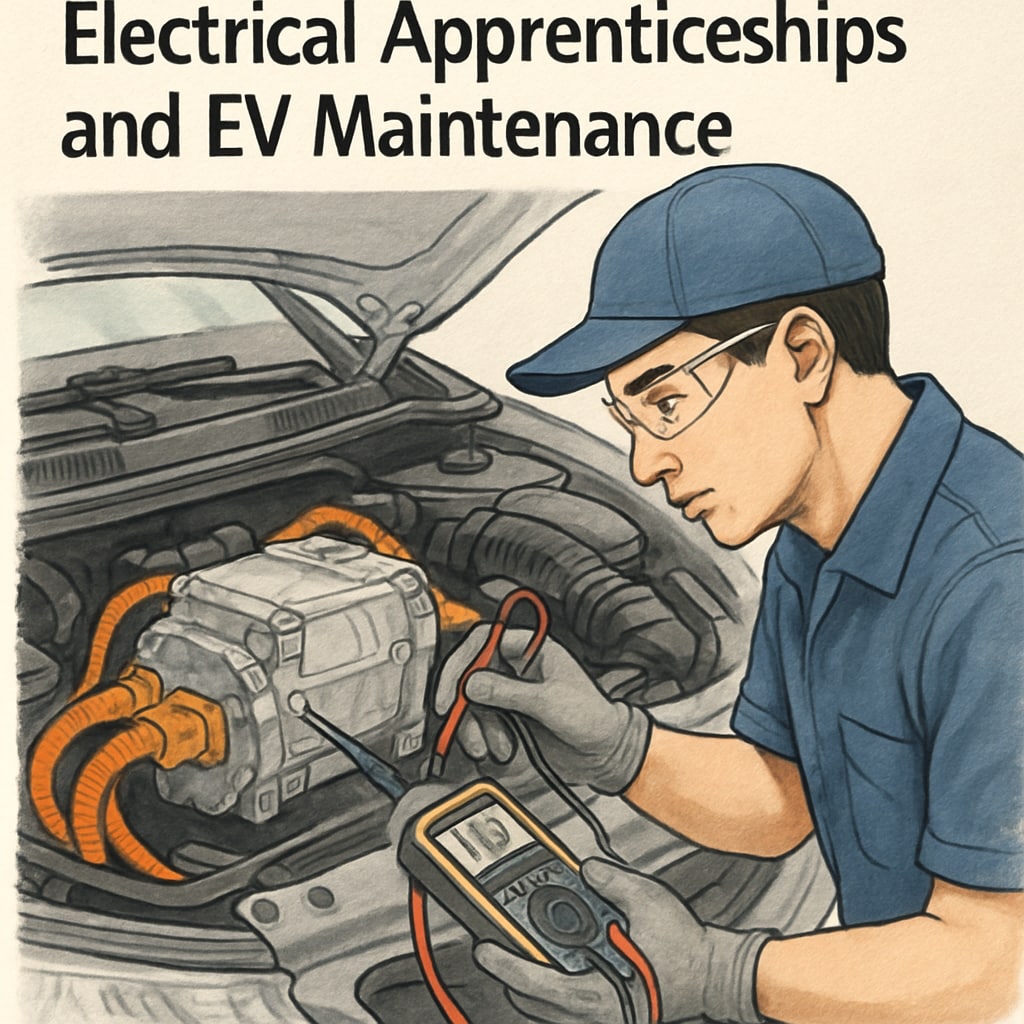Electrical apprenticeships have become a cornerstone for professional growth in the automotive industry. In an era where modern vehicles increasingly rely on advanced electrical systems, the expertise gained during an apprenticeship can provide a significant competitive edge. By bridging the gap between foundational electrical knowledge and the technological demands of today’s automobiles, electrical apprenticeships offer a unique pathway for aspiring professionals to thrive in this fast-evolving sector.
The Intersection of Electrical Expertise and Automotive Innovation
The automotive industry has undergone a remarkable transformation, driven by innovations such as electric vehicles (EVs), autonomous driving systems, and advanced infotainment technologies. At the heart of these advancements are complex electrical systems that demand skilled professionals capable of understanding, maintaining, and improving them. Electrical apprenticeships equip individuals with hands-on experience in circuits, wiring, and diagnostics, which are directly applicable to the growing demands of modern automotive technologies.
For example, electric vehicles rely heavily on battery management systems, inverters, and electric motors, all of which require specialized electrical knowledge. Apprentices who have honed their skills in these areas can effortlessly transition into roles that support EV development and maintenance. In addition, their ability to troubleshoot electrical components within traditional internal combustion engine (ICE) vehicles remains indispensable.

How Apprenticeships Build Transferable Skills
One of the greatest strengths of electrical apprenticeships is their ability to develop transferable skills. These skills are not only valuable in the automotive industry but also applicable across various engineering and technology sectors. Key competencies gained during an apprenticeship include:
- Problem-solving: Identifying and addressing electrical faults in complex systems.
- Technical literacy: Understanding electrical schematics and diagrams to implement effective solutions.
- Attention to detail: Ensuring precision in wiring, component installation, and system diagnostics.
- Adaptability: Staying updated with emerging technologies, such as EVs and smart vehicle systems.
For instance, an apprentice trained in diagnosing and repairing electrical issues in industrial settings can apply the same principles to the intricacies of automotive wiring and sensor systems. This versatility opens up opportunities to work in various roles, from automotive technician to systems engineer.
Leveraging Electrical Apprenticeship Experience in the Automotive Industry
To maximize the career opportunities that electrical apprenticeships bring, professionals should focus on the following strategies:
- Specialize in Emerging Trends: Dive deeper into areas such as EV technology, autonomous vehicle systems, or renewable energy integration within automotive design.
- Build Certifications: Pursue certifications relevant to the automotive sector, such as ASE (Automotive Service Excellence) or EV-specific training programs.
- Network with Industry Experts: Attend automotive conferences, seminars, and workshops to connect with professionals and stay informed about industry advancements.
- Showcase Practical Experience: Highlight specific projects or challenges tackled during the apprenticeship, particularly those involving automotive applications.
By aligning apprenticeship experiences with the demands of the automotive sector, individuals can effectively position themselves as experts in both electrical engineering and automotive technology. This dual expertise is highly sought after, especially as the industry moves towards a future dominated by electrification and automation.

The Road Ahead: Why Electrical Knowledge Is Indispensable
Looking ahead, the automotive industry shows no signs of slowing its adoption of advanced electrical systems. Electric vehicles are projected to dominate global markets, and autonomous vehicles are becoming increasingly viable. In this context, professionals with a strong foundation in electrical systems will continue to play a pivotal role in shaping the future of mobility.
Moreover, government initiatives and regulations promoting sustainable transportation are accelerating the demand for skilled technicians and engineers in EV development and manufacturing. Electrical apprenticeships provide an excellent starting point for anyone aspiring to contribute to this exciting and rapidly evolving field.
In conclusion, electrical apprenticeships are a gateway to a rewarding career in the automotive industry. By combining technical skills with a passion for innovation, professionals can unlock diverse opportunities and make significant contributions to the future of transportation.
Readability guidance: This article uses short paragraphs and lists to summarize key points, ensuring clarity and accessibility. Transition words like “for example,” “as a result,” and “moreover” enhance the flow of ideas, while the overall structure supports easy navigation through the content.


